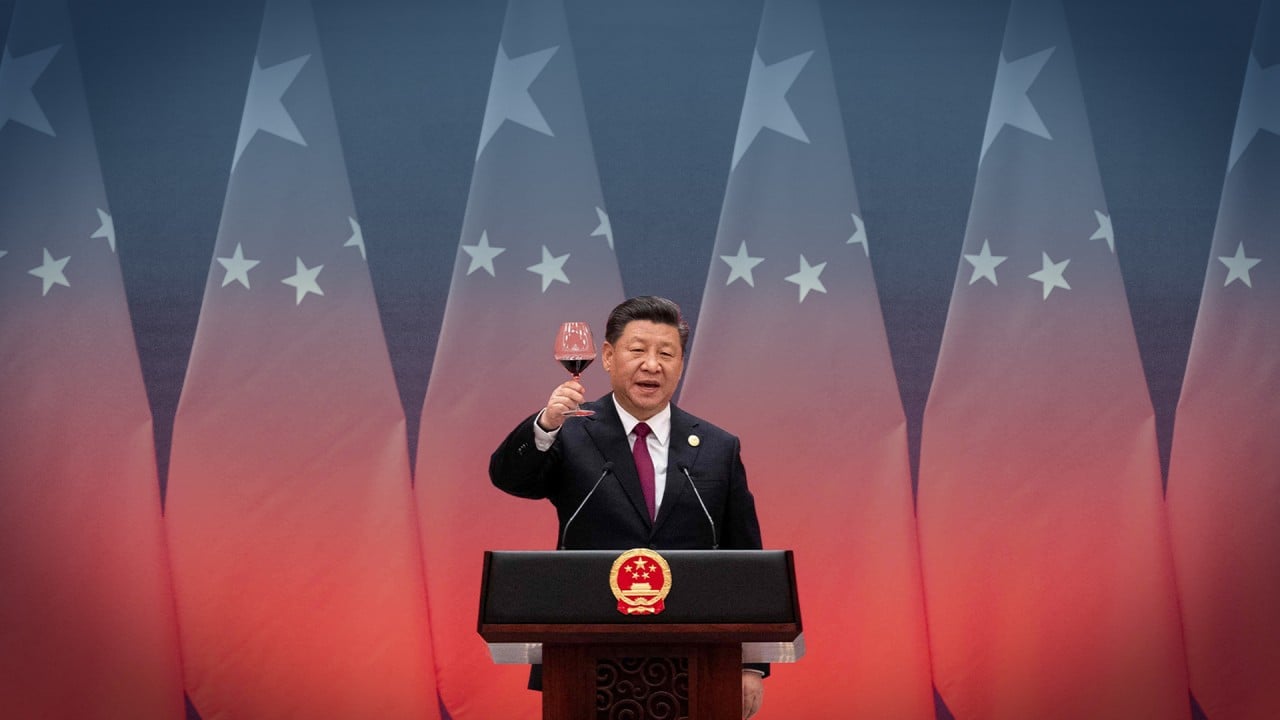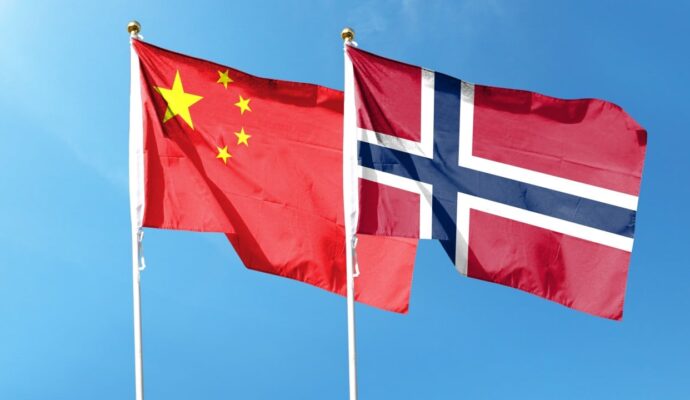Meetings were swiftly organised after the conference across these bodies – especially those in charge of propaganda and cultural works – in which the chiefs lavishly praised the new doctrine and ordered that future work plans be drawn up in accordance with it.
One of the first internal briefings was held last Sunday – the last day of the national conference – by China Media Group (CMG), whose mega state-owned enterprises include China Central Television, China National Radio, and China Radio International.
Will culture be China’s most important addition to Xi Jinping Thought?
Will culture be China’s most important addition to Xi Jinping Thought?
CMG head Shen Haixiong hailed the promulgation of Xi’s thoughts on culture as “the most important achievement” of the conference, an endorsement that was repeated in other follow-up meetings.
Shen urged attendees at the CMG briefing to work “full-heartedly” to promote and explain the new ideology so that it could be “deeply rooted in the hearts of the Chinese people”.
He also said it was necessary to tighten ideological controls across all its broadcast platforms “to ensure the absolute safety” of the main station’s position.
Shen said CMG’s mega television and radio stations must strengthen their international communication capabilities to “win the international public opinion and cognitive wars” for China.
At the same time, the broadcasters need to expand China’s “media diplomacy” and the “circle of friends who know China and are friendly to China”, he said.
Xi tells Politburo to toe party line ‘under all circumstances’
Xi tells Politburo to toe party line ‘under all circumstances’
At the culture ministry’s follow-up meeting on Tuesday, Hu Heping called for “in-depth, systematic and dedicated research” on the doctrine and for the results to be turned into concrete actions and projects.
Hu, a trusted confidant of the president, also extolled the launch of Xi’s new thought, which “shows the party’s historical confidence and cultural confidence have reached a new height”.
Hu’s push for dedicated study of the doctrine suggests the official Research Centre of Xi Jinping Thought on Culture could be established at his ministry, according to the Beijing observer.
Such a move would be a “political endorsement” for Hu, as it would give his ministry the task of developing the substance of Xi’s latest theory and driving it forward, the observer said.
Xi’s thoughts on culture – which encompass propaganda, news and public opinion – form the sixth pillar of his political doctrine, alongside the economy, diplomacy, military, environment and legal affairs.
Official research centres for Xi’s thought on most of these other areas have been established within relevant ministries or commissions, the observer said. “The cultural and tourism ministry is the natural choice to perform the secretariat and coordinating role for the thought’s further development.”
While Beijing has not disclosed which body is managing Xi’s thought on the military, it is likely to sit within the Central Military Commission, China’s top military decision-making body, chaired by Xi.
Also on Tuesday, Zhuang Rongwen, director of internet regulator the Cyberspace Administration of China (CAC), rounded up all of his deputies and department heads for a meeting.
China blocks thousands of social media accounts in latest ‘clean up’ campaign
China blocks thousands of social media accounts in latest ‘clean up’ campaign
Zhuang said the CAC shall “unswervingly adhere to the party’s leadership” in its internet control work and strive to build a “loyal, clean and responsible” team.
He also urged the agency’s cadres to “work diligently” to promote Xi’s thoughts online and to cultivate a “positive, healthy online culture”, while enhancing China’s voice abroad by online means.
Zhuang also stressed the need to be “resolute and effective” in “preventing and resolving ideological risks on the internet”.
It was also important to improve the effectiveness of comprehensive internet control and to speed up internet legislation, law enforcement and education, he said.
To ‘rally minds’: China’s gaokao exam tests grasp of Xi Jinping Thought
To ‘rally minds’: China’s gaokao exam tests grasp of Xi Jinping Thought
Shen, Hu and Zhuang all also serve as deputy chiefs of the ruling Communist Party’s central propaganda department.
A provincial propaganda official said his team was asked to work out a study plan on the culture doctrine “with our brain, with our heart and with our soul”, as well as a work plan to translate the learning into “concrete projects and actions in the right direction”.
The provincial official, who asked not to be named, said the intensive study campaign was starting less than two months after a party-wide thematic education programme on Xi’s thought that ran from April to August.
“We will have to burn more midnight oil to get ourselves up to date with all the new thoughts by Xi, it is the most important job this year for us,” he said.
As China navigates a ‘turbulent decade’, this may be Xi’s defining moment
As China navigates a ‘turbulent decade’, this may be Xi’s defining moment
Deng Yuwen, former deputy editor of Study Times, official newspaper of the Central Party School where cadres are trained, said Xi’s latest thought had a more combative tone, compared to his previous speeches on propaganda, ideology and culture.
“On one hand, he wants to tie Marxism to Chinese cultural roots so that the party’s ideology can gain better acceptance among the Chinese people,” Deng said.
“On the other hand, he needs to fend off the Western countries’ values and cut off their influence on the Chinese people, while increasing China’s voice globally.”



